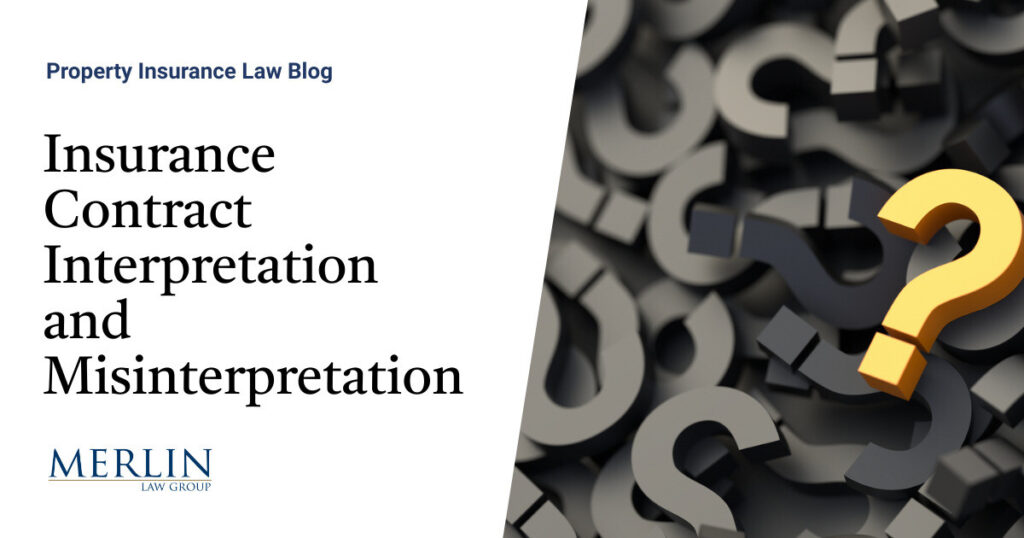Insurance Contract Interpretation and Misinterpretation

When giving speeches, presentations, and even while writing this blog, some may misinterpret or try to “push” a point that was never the point of the post. Yesterday’s post, Insurance Contract Interpretation—Check For State Exceptions and Policy Language Differences, was written purely as a lesson for all to learn a basic rule of insurance on contract interpretation— “general rules may have state exceptions and that policy language may impact those state exceptions.” I provided an example of this rule from a Pennsylvania case.
In doing so, I wrote a sentence stating:
Pennsylvania is a state where, depending on specific policy language, an appraiser could be hired on a contingent basis as an exception to the general rule followed in nearly every jurisdiction that prohibits the practice.
A commentator then failed to properly quote me by leaving out the example being a Pennsylvania case to set up questions leaving out Pennsylvania law:
[D]epending on specific policy language, an appraiser could be hired on a contingent basis as an exception to the general rule followed in nearly every jurisdiction that prohibits the practice.
The commentator then asked me questions about appraisal that were never the point of the post and appeared to intentionally leave out what I fully wrote.
So, to answer the commentator’s question:
Would we be correct then, to interpret your comment in this brief article seemingly indicates that Appraisers could potentially be charging on a Percentage Contingency Basis in all States, based on Specific Policy Language?
That would be incorrect. Could you imagine insurers being able to provide a contingent fee to their appraisers to lower the amount awarded in an appraisal? How fair and ethical would that be?
Most people follow the Golden Rule. It seems unfair to have appraisers being provided monetary incentives to provide awards, whether high or low, rather than the honest determination of the full amount without influence by money. The vast majority of states seem to follow this basic logic of fairness to an alternative dispute process, which is binding on both parties. A few states have different reasoning, which I respect but disagree with.
Although I and most other Appraisers either charge by calculating an Hourly Fee or by a Flat Rate Fixed Price for handling Appraisal Assignments, some other Appraisers Reverse Engineer a Percentage Based Fee into the equal amount of Hours it would take to reach that Percentage Amount for billing purposes, without indicating that they may be actually charging on a Percentage Basis already.
This is unethical and possibly criminal as well. Charging people on an hourly basis with a percentage result in mind by intentionally inflating the actual number of hours is not proper. Those who do so are subject to regulatory, criminal, and civil accountability.
For the commentator who made up the question, I challenge that person to list the people doing this publicly. If there are those doing so, you are breaking the law. I do not know what else to say other than to stop, assuming people are making up billing to arrive at a percentage amount.
Thought For The Day
I cannot remember a time when the Golden Rule was not my motto and precept, the torch that guided my footsteps.
—James Cash Penney







